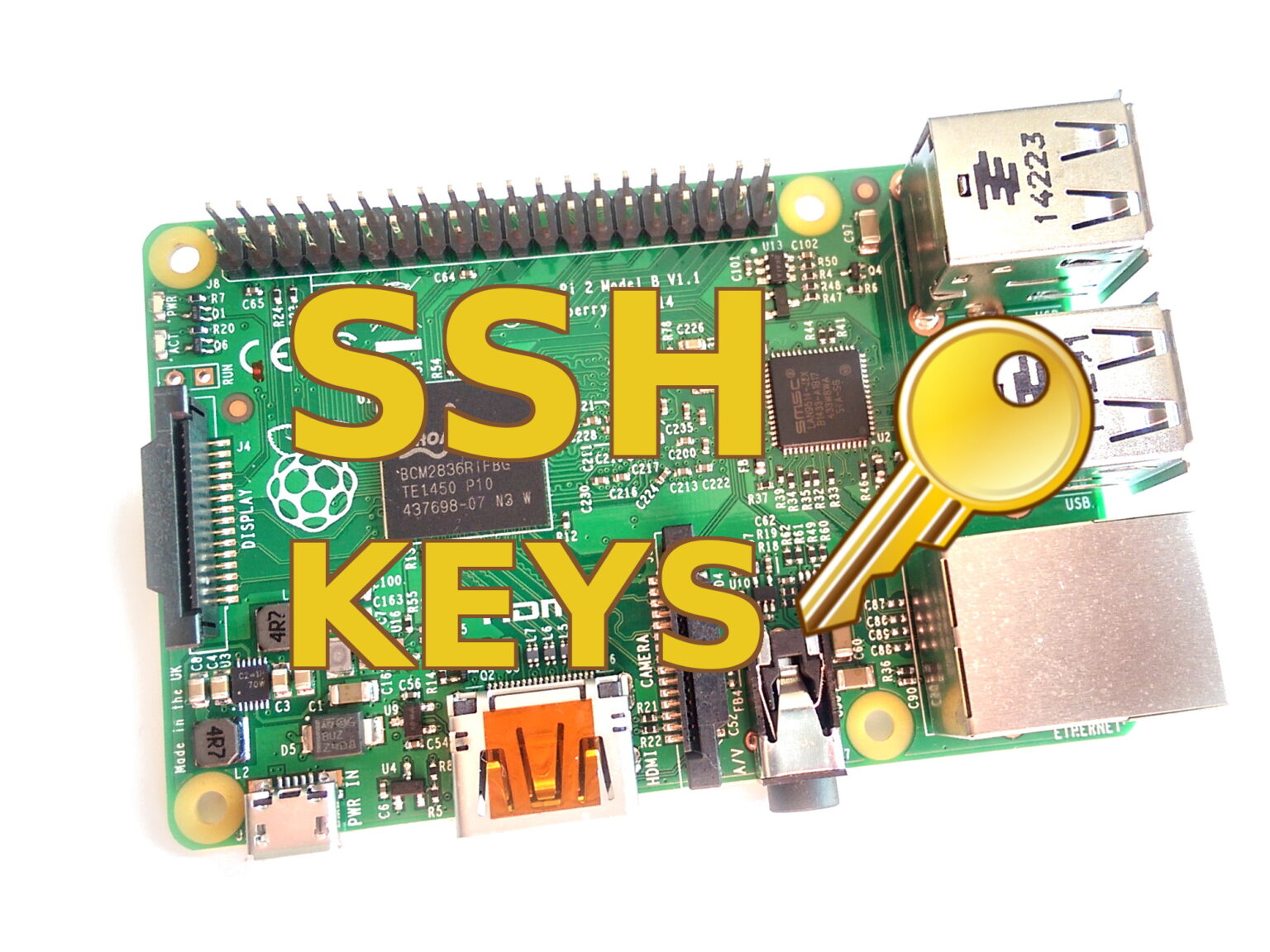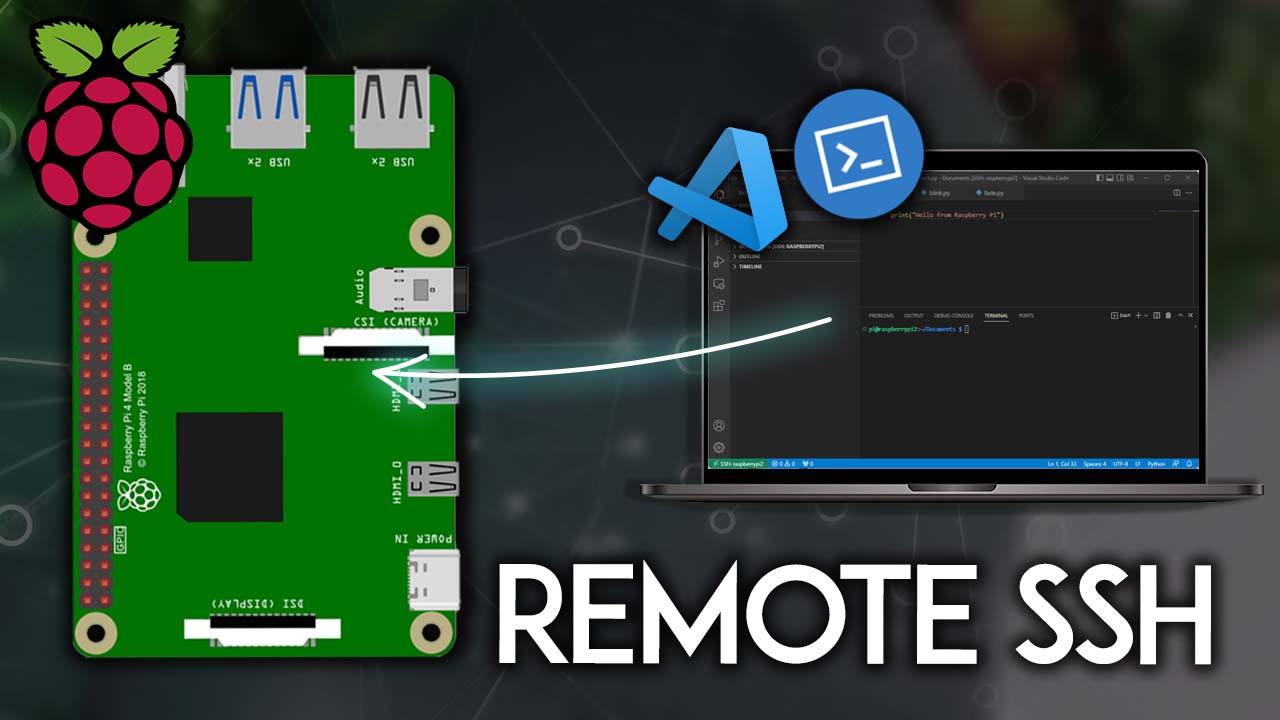Secure Raspberry Pi: Remote IoT With SSH Keys Simplified!
In a world increasingly reliant on interconnected devices, are you truly securing your Raspberry Pi and its crucial data? Implementing robust security measures is not merely an option, but an absolute necessity for safeguarding your IoT projects and ensuring data integrity.
The burgeoning Internet of Things (IoT) landscape presents a fascinating frontier, brimming with possibilities for automation, data analysis, and remote control. At the heart of many innovative IoT solutions lies the Raspberry Pi, a versatile and affordable single-board computer. Its adaptability and low cost have made it a favorite among hobbyists, researchers, and developers alike. However, the very accessibility that makes the Raspberry Pi so appealing also makes it a potential target for malicious actors. Without proper security measures, a Raspberry Pi can become a vulnerable entry point into a larger network, compromising sensitive data and disrupting critical operations. The key to mitigating these risks lies in understanding and implementing robust security protocols, and one of the most fundamental of these protocols is the use of SSH keys.
| Topic | Details |
|---|---|
| Concept | Remote IoT Platform with Raspberry Pi Using SSH Keys |
| Benefit 1 | Enhanced Security: SSH keys eliminate password-based authentication, reducing the risk of brute-force attacks. |
| Benefit 2 | Simplified Management: Remote IoT platforms streamline SSH key management, making it easier to deploy and maintain secure connections to Raspberry Pi devices. |
| Benefit 3 | Improved Scalability: Platforms are designed to manage a large number of devices securely, making them ideal for large-scale IoT deployments. |
| Crucial Aspect | SSH Key Importance: These keys are essential for establishing secure and encrypted communication channels between your Raspberry Pi and the remote IoT platform. |
| Platform Example | RemoteIoT: A platform designed to simplify and secure remote access to Raspberry Pi devices without the complexities of traditional SSH configurations. |
| Resource Link | Official Raspberry Pi Website |
This article explores the fundamental concepts and benefits of utilizing remote IoT platforms in conjunction with Raspberry Pi devices, with a particular emphasis on the critical role of SSH keys in securing these connections. We will delve into why SSH keys are paramount for Raspberry Pi security, how they function within the IoT ecosystem, and how platforms like RemoteIoT can simplify the process of implementing and managing them.
- Chloe Surreal Rising Star Medical Role Facts More
- Anna Malygon Leaks The Hottest Onlyfans Content You Missed
SSH (Secure Shell) keys are a cornerstone of secure communication in the IoT ecosystem. They provide an alternative to traditional password-based authentication, offering a significantly more robust and secure method for verifying the identity of users and devices attempting to connect to a Raspberry Pi. In essence, an SSH key pair consists of two distinct keys: a private key, which should be kept secret and stored securely on the user's machine, and a public key, which can be freely shared and stored on the Raspberry Pi. When a user attempts to connect to the Raspberry Pi using SSH, the server uses the public key to encrypt a challenge, which can only be decrypted by the corresponding private key. If the user's private key successfully decrypts the challenge, the connection is authenticated. This process eliminates the need for transmitting passwords over the network, thereby mitigating the risk of interception and password-based attacks.
For Raspberry Pi users, SSH keys provide an added layer of security by replacing traditional passwords, which are often weak and vulnerable to brute-force attacks. Consider the typical scenario: a user sets up a Raspberry Pi with a default password or a simple, easily guessable password. This immediately makes the device susceptible to automated attacks that attempt to gain access by trying common passwords. With SSH keys, however, the authentication process is based on cryptographic keys, which are far more difficult to crack. Even if an attacker were to intercept the communication, they would not be able to glean the user's password, as it is never transmitted. Furthermore, SSH keys can be configured to require a passphrase for added security. This means that even if an attacker gains access to the private key, they would still need to know the passphrase to use it, further enhancing the security of the Raspberry Pi.
The benefits of using SSH keys extend beyond just enhanced security. They also provide a more convenient and efficient way to manage remote access to Raspberry Pi devices. With password-based authentication, users must enter their password every time they connect to the device. This can be cumbersome, especially when managing multiple Raspberry Pi devices. SSH keys, on the other hand, allow for passwordless login, streamlining the connection process and saving valuable time. Once the SSH keys are properly configured, users can simply connect to their Raspberry Pi devices without having to enter their password each time. This is particularly useful in IoT deployments where Raspberry Pi devices are often deployed in remote locations and require frequent access for maintenance and updates.
- Somali Wasmo Telegram Channels Find Groups More Updated
- Vegamovies Streaming Find Movies Series Online Updated
However, setting up and managing SSH keys can be a complex and time-consuming process, especially for users who are not familiar with command-line interfaces and cryptographic concepts. Generating key pairs, transferring public keys to the Raspberry Pi, and configuring SSH settings can be daunting tasks for beginners. This is where remote IoT platforms come into play. These platforms are designed to simplify the process of managing remote access to Raspberry Pi devices, including the configuration and management of SSH keys.
Platforms like RemoteIoT make it simple and secure without all the extra hassle. These platforms provide a user-friendly interface for generating SSH key pairs, distributing public keys to Raspberry Pi devices, and managing SSH settings. They often offer features such as key rotation, which automatically generates new SSH keys on a regular basis to further enhance security. Some platforms also provide centralized management tools that allow users to monitor the status of their Raspberry Pi devices and remotely troubleshoot issues. By leveraging the capabilities of remote IoT platforms, users can significantly reduce the complexity and overhead associated with managing SSH keys, freeing up their time to focus on other aspects of their IoT projects.
One of the key advantages of using remote IoT platforms is their ability to scale to accommodate large deployments of Raspberry Pi devices. In many IoT applications, it is common to deploy dozens, hundreds, or even thousands of Raspberry Pi devices across a wide geographical area. Managing SSH keys for such a large number of devices can be a logistical nightmare. Remote IoT platforms provide centralized management tools that allow users to easily deploy and manage SSH keys across their entire fleet of devices. They often offer features such as automated key provisioning, which automatically distributes SSH keys to new devices as they are added to the network. This ensures that all devices are properly secured from the moment they are deployed.
Furthermore, remote IoT platforms typically provide robust security features that help protect against unauthorized access. They often offer features such as two-factor authentication, which requires users to provide two independent forms of authentication before they can access the platform. This adds an extra layer of security, making it more difficult for attackers to gain access even if they have compromised a user's password or SSH key. Some platforms also provide intrusion detection systems that monitor network traffic for suspicious activity and alert administrators to potential security breaches.
The process of integrating SSH keys with a remote IoT platform for Raspberry Pi typically involves the following steps. First, the user creates an account on the remote IoT platform and registers their Raspberry Pi device. Next, the platform generates an SSH key pair and provides instructions for installing the public key on the Raspberry Pi. This usually involves copying the public key to the Raspberry Pi's authorized_keys file, which is located in the .ssh directory in the user's home directory. Once the public key is installed, the user can connect to the Raspberry Pi using SSH without having to enter their password. The remote IoT platform then provides a centralized dashboard for managing the SSH keys and monitoring the status of the Raspberry Pi device. This dashboard typically includes features for viewing the device's IP address, CPU usage, memory usage, and disk space. It may also include tools for remotely rebooting the device, running commands, and transferring files.
In conclusion, the use of SSH keys is a fundamental security practice for Raspberry Pi users in the IoT ecosystem. By replacing traditional password-based authentication with cryptographic keys, SSH keys provide a significantly more robust and secure method for verifying the identity of users and devices attempting to connect to a Raspberry Pi. While setting up and managing SSH keys can be a complex process, remote IoT platforms offer a user-friendly and scalable solution for simplifying the task. These platforms provide centralized management tools for generating, distributing, and monitoring SSH keys across a fleet of Raspberry Pi devices, helping users to secure their IoT deployments and protect against unauthorized access. By leveraging the capabilities of remote IoT platforms, users can focus on the core functionality of their IoT projects, knowing that their Raspberry Pi devices are securely protected.
However, it is important to note that SSH keys are not a silver bullet for security. They should be used in conjunction with other security best practices, such as keeping software up to date, using strong passwords, and implementing firewalls. It is also important to regularly rotate SSH keys to minimize the risk of compromise. By following these best practices, users can significantly enhance the security of their Raspberry Pi devices and protect their IoT projects from attack.
Furthermore, the choice of remote IoT platform is a critical decision that should be based on a careful evaluation of the platform's features, security capabilities, and cost. Some platforms are designed for small-scale deployments, while others are designed for large-scale deployments. Some platforms offer a wide range of features, while others focus on a specific set of capabilities. It is important to choose a platform that meets the specific needs of your IoT project.
In addition to security, remote IoT platforms can also provide other benefits, such as remote monitoring, remote management, and data collection. These features can help users to improve the efficiency and reliability of their IoT deployments. Remote monitoring allows users to track the status of their Raspberry Pi devices and identify potential problems before they cause disruptions. Remote management allows users to remotely reboot devices, run commands, and transfer files. Data collection allows users to gather data from their Raspberry Pi devices and analyze it to gain insights into their IoT deployments.
The future of IoT security is likely to involve even more sophisticated security measures, such as blockchain-based authentication and artificial intelligence-powered threat detection. As the IoT ecosystem continues to grow and evolve, it is important to stay up to date on the latest security threats and best practices. By taking proactive steps to secure their Raspberry Pi devices, users can help to ensure the safety and reliability of their IoT projects.
Ultimately, securing a Raspberry Pi within an IoT ecosystem demands a multi-layered approach, with SSH keys serving as a foundational element. By carefully considering the specific needs of your project and selecting the right remote IoT platform, you can create a secure and reliable environment for your Raspberry Pi devices, enabling you to unlock the full potential of the Internet of Things.
- Vegamovies 2025 Is It Safe Your Guide To Streaming Movies Online
- Love After Lockup Are Brittany Marcelino Still Together Find Out

Unlock The Power Of Free RemoteIoT Platform SSH Key Raspberry Pi For

Mastering SSH Remote IoT Raspberry Pi A Comprehensive Guide With Free

Remote IoT Platform SSH Raspberry Pi Download Free A Comprehensive Guide